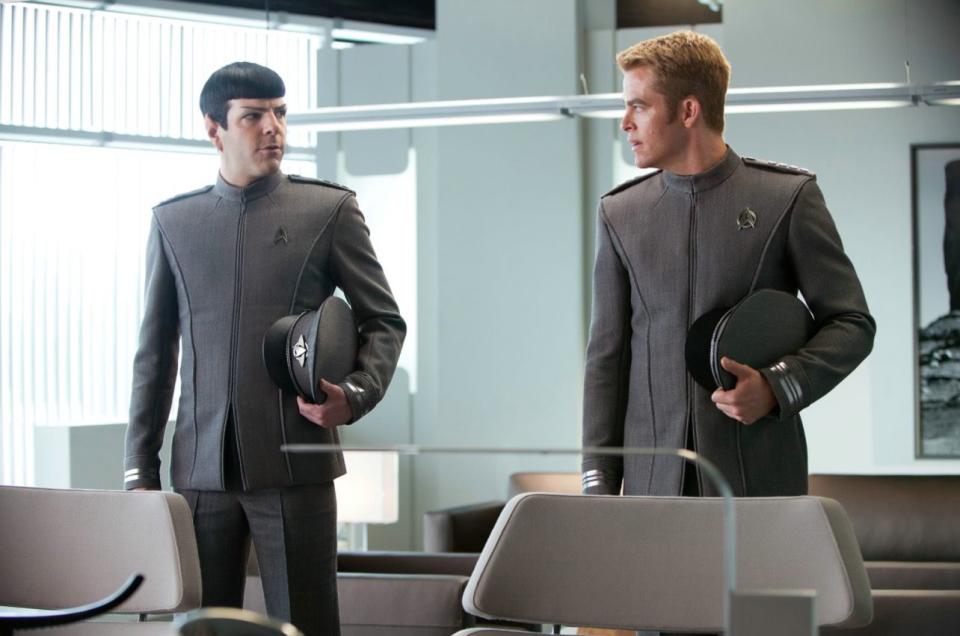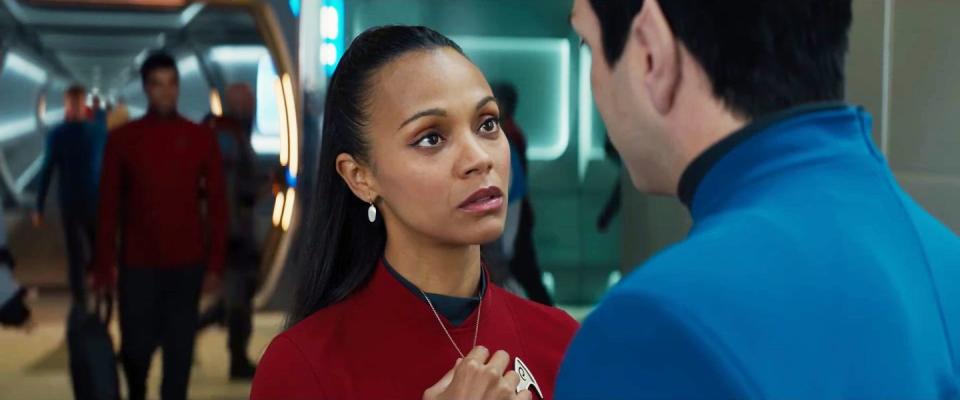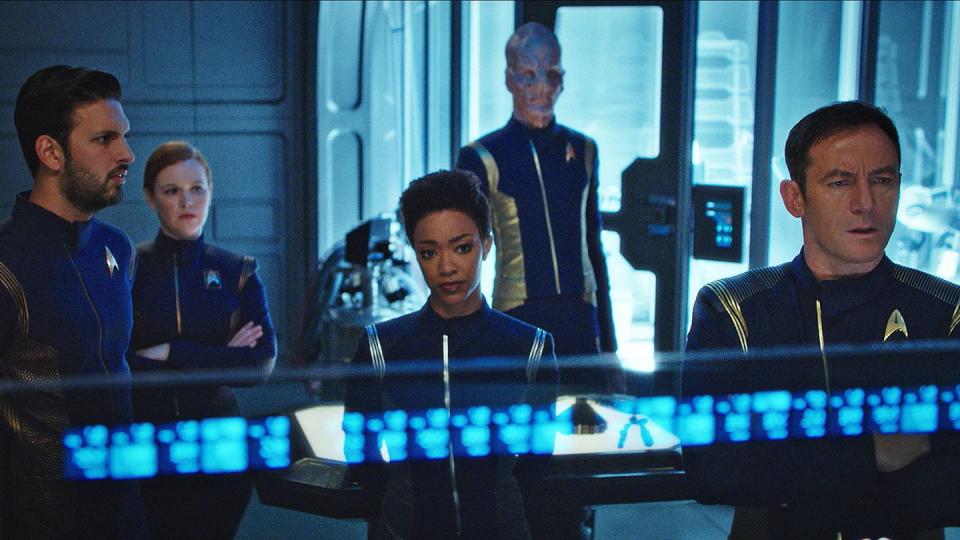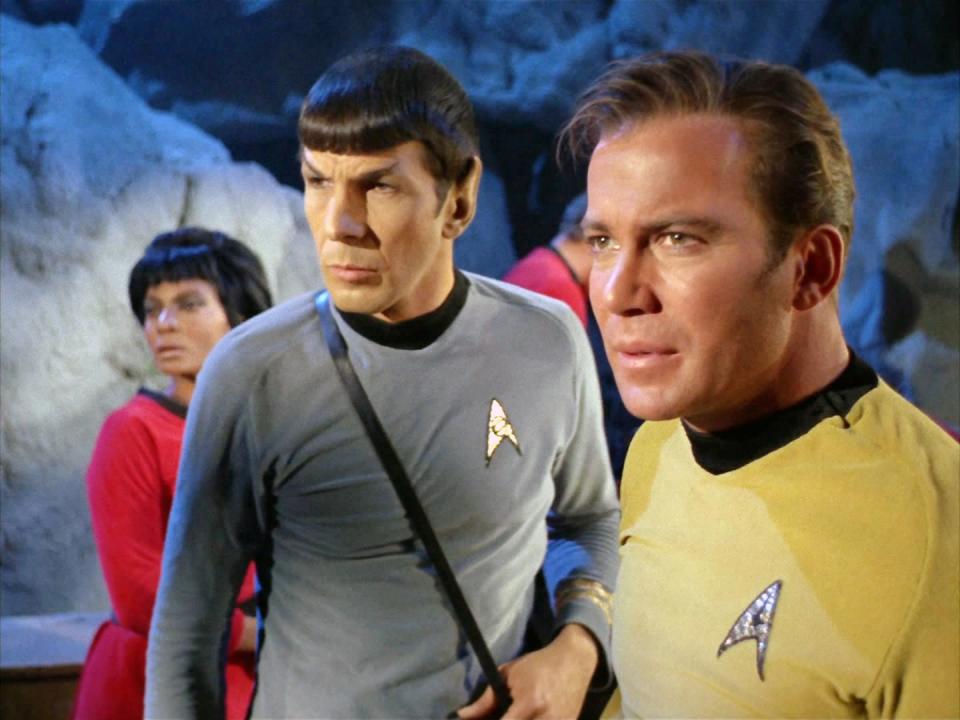Here's why Star Trek should quit making movies

It's been almost a decade since JJ Abrams' Star Trek revived the fortunes of an apparently dead franchise – four years earlier, last-TV-show-standing Enterprise had gone out with a whimper, but Abrams' reimagining of Kirk and crew brought Trek out of the shadows and back to the masses.
The movie was a box-office success, becoming Trek's highest-grossing cinematic outing of all time. It won over the critics, with Entertainment Weekly asserting that Abrams had crafted "an origin story that avoids any hint of the origin doldrums" and The Guardian gushing, "The story of Kirk and Spock is brought thrillingly back to life by a new first generation: Chris Pine and Zachary Quinto, who give inspired, utterly unselfconscious and loveable performances, with power, passion and some cracking comic timing."

Related: The future of the Star Trek franchise explained: WTF is going on with the TV shows and movies?
Most impressive of all, the film managed the near-impossible balancing act of appealing to newcomers without patronising or pissing off the Trek hardcore. As the Rotten Tomatoes critical consensus has it, "Star Trek reignites a classic franchise with action, humour, a strong story, and brilliant visuals, and will please traditional Trekkies and new fans alike."
The stage was set for a bold new era. But, nine years later, the hard truth is that what's followed has failed to capitalise on the success and potential of that '09 movie.
Though it arrived amidst a storm of hype, 2013 sequel Star Trek Into Darkness proved rather more divisive than its predecessor. Though again a financial success, it split the critics: Rolling Stone called the Wrath of Khan-inspired adventure "crazy good", but the New York Post criticised its "murky plot", "leaden dialogue" and "one-dimensional characters", while the New York Times called the film "uninspired hackwork".

Even JJ Abrams acknowledged the shortcomings of Into Darkness in a 2015 interview with Buzzfeed: "I would never say that I don't think that the movie ended up working. But I feel like it didn't work as well as it could have had I made some better decisions before we started shooting."
The reaction to the third reboot film, 2016's Star Trek Beyond, was similarly mixed. "Terrific!" said IGN. "Highly entertaining!" raved The Hollywood Reporter. "Lightweight!" grumbled Entertainment Weekly. "Tepid!" said the New York Post.
Notably, though, unlike the two previous movies, this Justin Lin-helmed entry also underperformed at the box office: once the final figures were in, Deadline suggested that Beyond had ending up making an estimated loss of $50.5 million.
Ever since, the Trek film franchise has been in a strange kind of limbo, the spark lit by the 2009 film having seemingly been doused by its two slightly underwhelming follow-ups.

Though pre-production on a fourth movie took a positive step forward with reports in April that Jessica Jones director SJ Clarkson was in talks to helm the movie, the latest intel has the film in jeopardy, with both Chris Pine and Chris Hemsworth – who was set to make a time-travelling encore as Kirk's late father – having dropped out.
The Star Trek 4 situation has been even more confused of late by news of an alternative sequel being developed alongside the 'core' movie by none other than Quentin Tarantino. Simon Pegg, though, has suggested that this sidequel is merely an idea "in the bank" and might not happen for "five or six years".
Star Trek 4 is in chaos. Tarantino's Trek might materialise at some stage, but with Pegg also insisting that movie won't be an R-rated "Pulp Fiction in space", there's a very real possibility that this project won't entirely satisfy either purists or those thirsty for a sweary, blood-spattered Trek outing (if it happens at all).
It's a tough call, but maybe the time has come to call time on the Star Trek movies – at least in their current form, with the current cast – and for the franchise to refocus all of its energies back into television?

Because while the films appear to be floundering, Trek on television is flourishing. Anticipation is high for the return of Star Trek: Discovery, the first ongoing series since Enterprise, with a second season expected to launch in January.
Discovery showrunner Alex Kurtzman has also signed a five-year deal to oversee and expand the Trek franchise for television, with Patrick Stewart attached to reprise his role as The Next Generation's Captain Picard in one new series – a dream scenario for Trekkies.
More series, both live-action and animated, are also in the works. Earlier this month, CBS TV Studios president David Stapf said, "My goal is that there should be a Star Trek something on all the time on [CBS streaming service] All Access."
In contrast to the fuzzy future of the films, there's a clear dedication to and vision for the franchise on the small-screen right now. It's an exciting time for Star Trek on television, a medium that key figures associated with the brand have suggested is its most natural home.

"You get a lot of... CGI effects [in a film], which is the epic movie-making aspect of today," William Shatner said back in 2013, around the time of Star Trek Into Darkness. "But when you get into the small screen, you need stories – entertaining, interesting, vital stories."
Trek veteran Ron Moore, a writer/producer on The Next Generation, Deep Space Nine and Voyager- later echoed Shatner's comments. "I think its home and its heart is really in television," Moore told Digital Spy in 2014. "The kinds of stories that you'll tell in the features space are not the kinds of stories that made that show so popular.
"The features all have to be action-oriented. They all have to have enormous stakes. The TV shows were morality plays, they were more thematic, they were examining society in different ways. Sometimes the stakes were just one crew member's life, sometimes the stakes were just one alien world or the Enterprise.
"The TV show is really what Star Trek is to me. "
Star Trek's relationship with television and film has always been a case of ebb and flow: the original series led to the first batch of feature films, which in turn inspired a return to television, which ended up spurring on the movie reboots. There's absolutely no reason for the franchise to turn its back on cinema forever.
But for now at least, with the fortunes of the current film series having turned sour, a singular focus on its small-screen roots might be the best way to boldly go.
Want up-to-the-minute entertainment news and features? Just hit 'Like' on our Digital Spy Facebook page and 'Follow' on our @digitalspy Instagram and Twitter account.
('You Might Also Like',)

 Yahoo News
Yahoo News 
